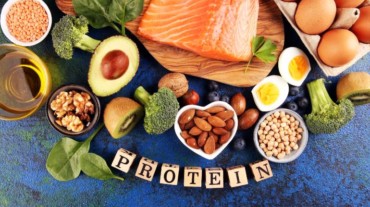
The covid-19 pandemic has impacted billions across the globe. Along with prevention and vaccination, it’s necessary to follow healthy dietary habits not only for better protection, but to also fight and recover from this infection.
Optimal nutrition is critical for the immune system, and therefore the only sustainable way to survive and revive in the current situation. A proper diet can ensure the body is in a proper condition to defeat the virus.
It’s essential to follow these diet measures, not just to fight the infection but to recover strongly.
A nourishing meal includes a combination of carbs, protein and vegetables, with a little healthy fat. It can be as simple as a khichdi (rice/dalia with dal and vegetables with one teaspoon of ghee). If for any reason cooking at home is not possible, do not hesitate to ask help from family members or neighbours.
Small meals will ensure your stomach is able to easily digest whatever you are consuming.
During infection, your body ends up losing a lot of muscle mass, which can cause extreme fatigue, weakness and even cramps. In order to avoid this, make sure you consume at least one gram/kilogram body weight protein in your daily diet. From the following protein rich sources, add at least one source in each meal (main as well as small) to your diet.

To support a healthy gut, add natural prebiotics (food for good bacteria) in the form of fibre-rich fruits, vegetables, and whole grains. Natural probiotics (good bacteria) can be added by consuming homemade curd, overnight soaked cooked rice (fermented), and more. A healthy gut ensures an adequate synthesis of vitamin B12, which plays an important role in the production of RBCs (red blood cells), which helps in the transportation of oxygen to all the vital organs.
During infection, the body’s immunity drops. In order to strengthen the immunity and help your body fight the infection properly, make sure you add the following four nutrient-rich foods to your daily diet.
Also, Watch:
Make sure to add a minimum 5-6 servings of fresh watery fruits (watermelon, muskmelon, cantaloupe etc) and raw vegetables, especially as mid-day snacks. They are a source of natural antioxidants, which will help you fight both infection as well as inflammation in the body.
Select Topics of your interest and let us customize your feed.
PERSONALISE NOWWater enables the transportation of nutrients to all body cells, thereby helping in the maintenance of body temperature. It also helps to remove toxins from the body. Thus, it is extremely important to keep up your hydration levels by:
8. Avoid mucus-producing foods like curd, milk, rice, and potato, if you have cough and congestion. Add the following two herbal remedies to arrest sore throat and congestion:
Foods which are sugary, packaged, processed, preserved, oily and fattening are highly inflammatory in the body. Such foods need to be strictly avoided both during infection as well as recovery to make sure the process of recovery is faster.
These are general tips for home quarantined patients without medical conditions. People with existing comorbidities like diabetes and heart conditions must reach out to their nutritionist to get a diet plan, which is specifically made keeping in mind their medical conditions and symptoms.